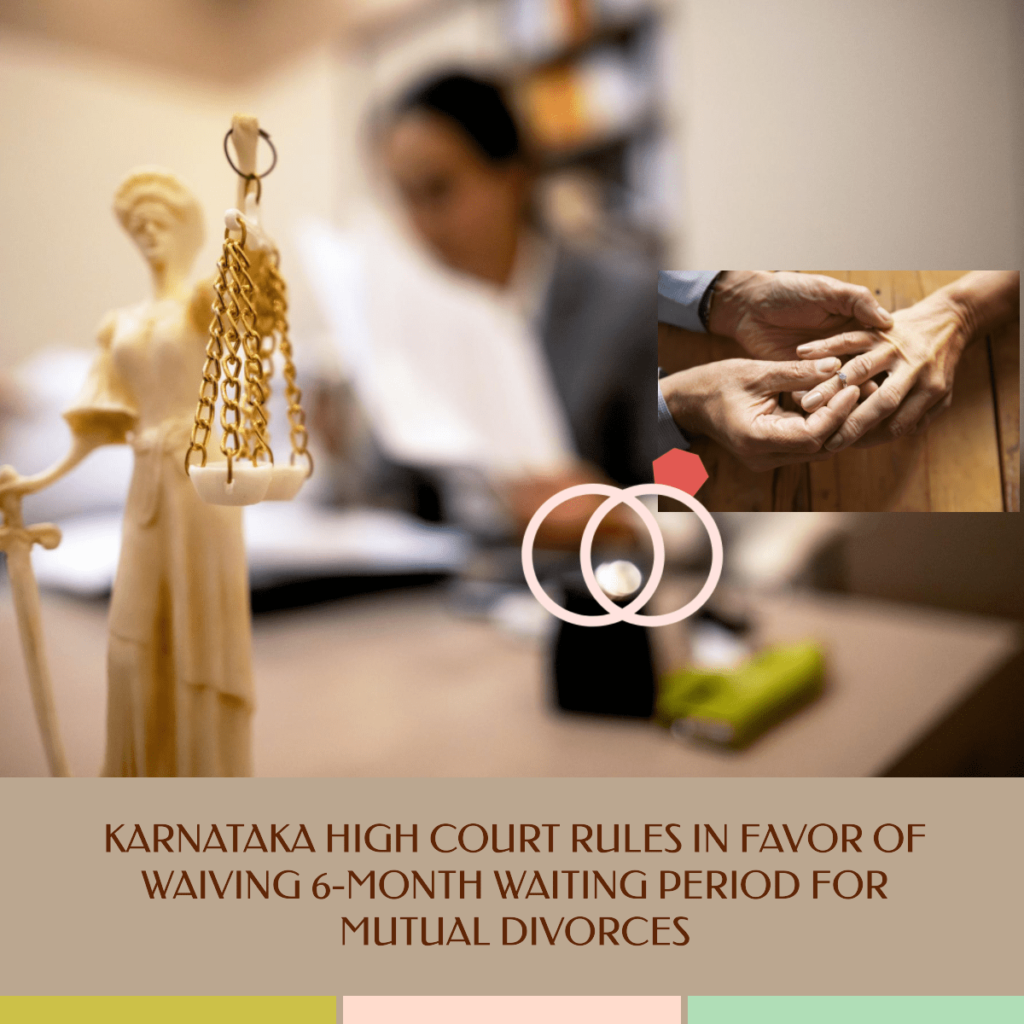Introduction:
Waiting Period Waiver: We are pleased to announce a groundbreaking judgment from the High Court of Karnataka, dated September 4, 2018, pertaining to Writ Petition No. 33019/2018 under Article 227 of the Constitution of India. This significant legal development focuses on a key facet of mutual divorce petitions, specifically addressing the dispensation of the mandatory six-month waiting period outlined in Section 13B(2) of the Hindu Marriage Act, 1955. The court’s decision holds particular importance in the context of matrimonial law and divorce proceedings. It signifies a crucial step in evolving legal perspectives on mutual divorce cases.

Background:
In this case: Nithesxxx challenged an order dated June 8, 2018, related to an application (IA No.2) filed in M.C. No.38/2018 before the trial court. The application aimed to waive the waiting period, and its dismissal led to the filing of the writ petition.
Court’s Consideration in Waiting Period Waiver:
During the hearing, the Court considered arguments from both parties, referencing key Supreme Court decisions, notably the recent judgment in the case of Amardeep Singh v. Harveen Kaur. This decision clarified that the six-month waiting period prescribed by Section 13B(2) is not mandatory but directory.
Joint Affidavit and Grounds In Waiting Period Waiver:
In a joint affidavit, the petitioner and respondent highlighted complete incompatibility, stating they had lived separately for a year, rendering cohabitation impossible. The petitioner expressed his intent to remarry, while the respondent sought opportunities abroad.
The Verdict on Waiting Period Waiver:
On September 4, 2018, the Court annulled the previous order & instructed the trial court to expedite the main petition under Section 13B(1). Importantly, the directive emphasized foregoing the insistence on the statutory six-month waiting period.
Significance of the Decision:
This groundbreaking decision underscores the Court’s authority in waiving the waiting period for mutual divorce, taking into account individual circumstances. Moreover, recent judgments by the Supreme Court have clarified the discretion granted to the Court in handling such matters. Significantly, the Court stresses the non-mandatory nature of the waiting period, facilitating a more adaptable approach to divorce proceedings. Consequently, this approach aligns seamlessly with the evolving dynamics of modern marital relationships.
Conclusion:
This judgment represents a notable advancement in the legal landscape, offering clarity and flexibility in managing mutual divorce cases. It establishes a precedent for situations where the waiting period might impose undue hardship on the parties involved. Additionally, it serves as a testament to the judiciary’s dedication to adapting to the evolving complexities of modern relationships. The decision reflects a proactive stance in addressing the unique challenges posed by contemporary marital dynamics



Leave a Reply